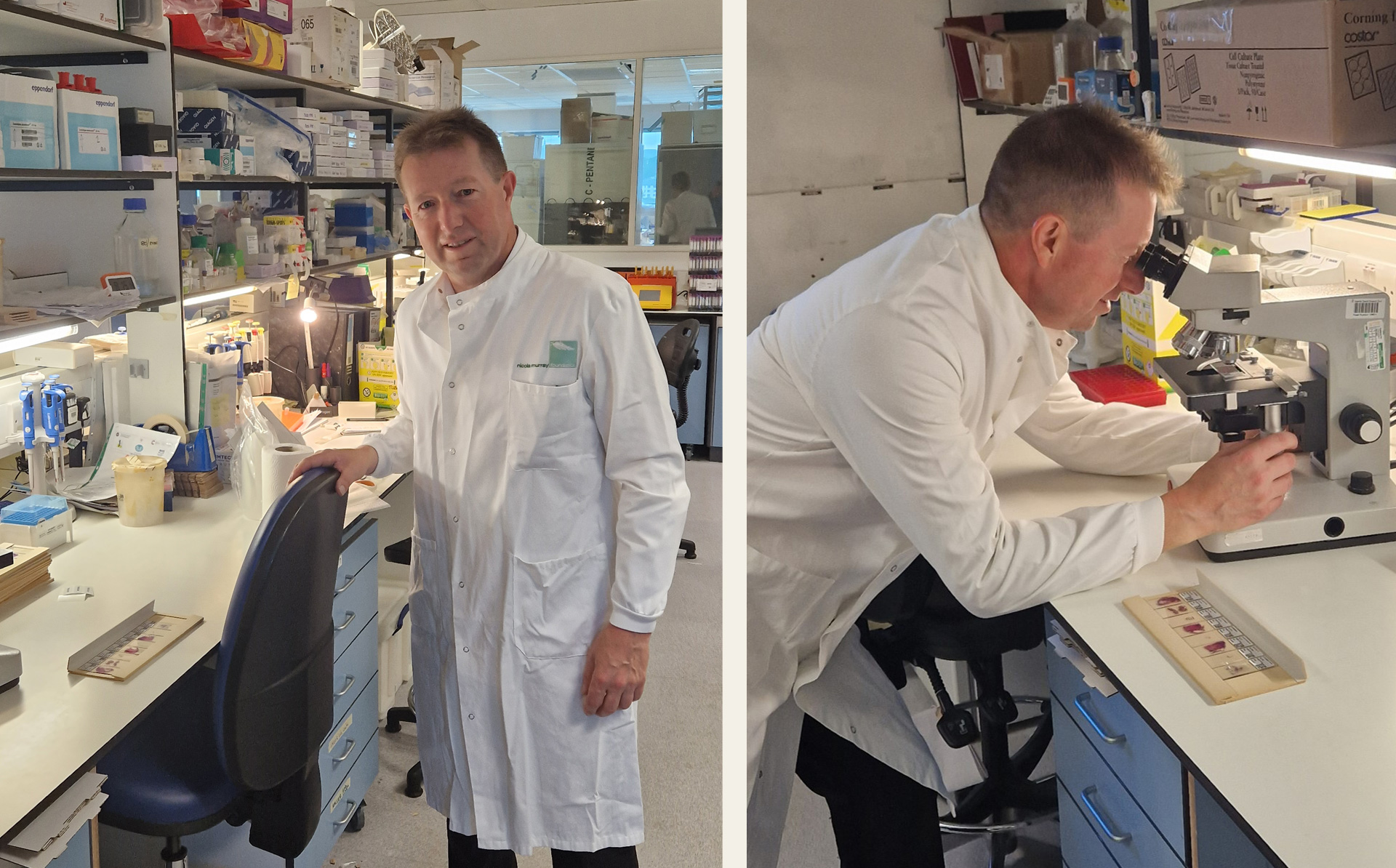Research Team
Professor Gourley and the team of researchers
Professor Charlie Gourley
Charlie Gourley graduated with honours in Genetics from the University of Glasgow in 1991. He then went on to qualify as a medical doctor in 1994 also at the University of Glasgow. Charlie progressed through his medical training in Edinburgh, continuously combining that with active research interests. He has successfully held research positions both at the University of Edinburgh and within the NHS.
Charlie’s career ladder took him to his current position as a Professor and Honorary Consultant in Medical Oncology, specialising in gynaecological cancers. He leads a clinical research team at the Edinburgh Cancer Centre, and a translational research group at the University of Edinburgh Cancer Research UK Centre.
He is a member of the National Cancer Research Network gynaecological cancers clinical studies group, the National Cancer Research Network ovarian subgroup and the Scottish Gynaecological Cancers Trials Group. He is also an active member of several other committees.

The Team
Professor Gourley is supported by a team of:
Simon Herrington – Professor of Molecular Cancer Pathology
My main research interest is pathological aspects of ovarian tumours, as part of the Nicola Murray Centre for Ovarian Cancer Research (Prof Charlie Gourley), with current projects including the molecular investigation of high-grade serous, low grade serous, endometrioid and clear cell ovarian carcinomas. I am Editor in Chief of The Journal of Pathology: Clinical Research. My research interests are aligned with my clinical practice in gynaecological pathology as a Consultant Pathologist with NHS Lothian
Robb Hollis – Early Career Fellow
I’m an Early Career Fellow establishing my own program of research in ovarian cancer. My work uses both laboratory and computational approaches to study different types of ovarian cancer, including rarer forms of the disease that have been under-studied in the past.
Sarah Taylor – Post-Doctoral researcher
I am a post-doc currently working on a number of aspects of ovarian cancer including novel drug screens in Clear Cell Ovarian Cancer. My PhD was on high grade serous ovarian cancer, and how the ability of tumour cells to repair damage to their DNA can change the effectiveness of chemotherapy.
John Thomson – Bioinformatician
I am a bioinformatician within the Edinburgh Cancer Research UK Centre and have been a member of the NMCOCR since 2018, working on a range of cancer projects. I specialise in – omics based cancer studies, focussing on genomics both on assay design, coding and computational processing as well as downstream data analysis linking these datasets to clinical outcomes.
Mike Churchman – Laboratory Manager
In parallel with managing the day to day running of the Nicola Murray Centre for Ovarian Cancer Research, I'm also involved in a number of national and international clinical trials and I am working on assessing new technologies and methods to be used in future research.
Ian Croy – Histology technician
I am the histology technician for the NMCOCR lab, responsible for the handling and preparation of tissue samples.
Emily Southworth – PhD Student
I'm Emily and I'm a second year PhD student funded by The Pathological Society of Great Britain and Ireland. My project aims to understand the genetic relationship between ovarian and endometrial cancers, as well as the significance of certain mutations in a gene known as CTNNB1
Dr Ailsa Oswald – TRACC Clinical Research Fellow
I'm a medical oncology registrar and TRACC clinical research fellow, currently undertaking a PhD (CRUK/AstraZeneca funded)
Lorna Stillie
I'm a third year CRUK TRACC MB-PhD stude studying the clinical phenotype and implications of NF1 copy number loss in high-grade serous ovarian cancer.
Eve
I am a medical oncology specialty registrar with an interest in ovarian cancer research. As part of the ECAT programme, I am undertaking a Wellcome-funded PhD fellowship in the Gourley lab. I aim to characterise the role of the WRN gene in high grade serous ovarian cancer and identify new therapeutic opportunities in WRN-deficient patients.

